Ever see those pony car postage stamps produced by the United States Postal Service? Having our very own government create automotive art for daily use is something that we don’t always get to experience. Tom Fritz, the gentleman who illustrated them, was at the recent Barrett-Jackson Scottsdale 2023 auction, and the ClassicCars.com Journal caught up with him to learn more about him and how the stamps came to be.

In case you missed out on the pony car stamps (which are still available), here are the ones in the series: Fathom Green 1969 Chevrolet Camaro Z/28, Big Bad Orange 1969 AMC Javelin (replete with all the mod candy), Burgundy 1967 Mercury Cougar XR-7 GT, Plum Crazy 1970 Dodge Challenger R/T and Bright Yellow 1969 Ford Mustang Boss 302. So where’s the Plymouth Barracuda? It actually has not been neglected, as Tom also painted the 2013 series of muscle cars that included a Limelight 1970 Hemi‘Cuda, Hemi Orange 1969 Dodge Charger Daytona, Dark Blue 1967 Shelby GT500, Cranberry Red 1970 Chevrolet Chevelle SS and Burgundy 1966 Pontiac GTO.
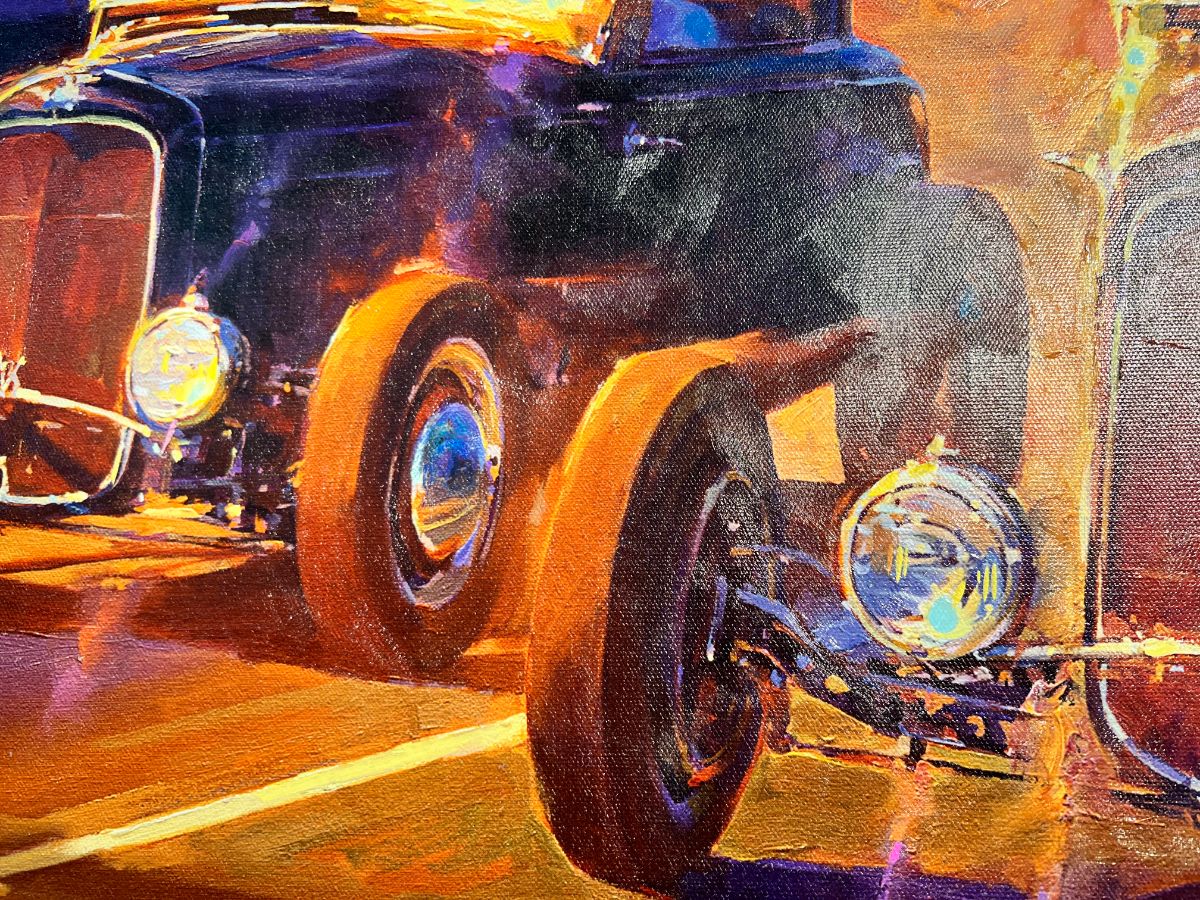
Tom grew up in the San Fernando Valley of California, a suburban land of promise and action in the 1960s. He’s been artistic his whole life, with drawing a Tom Swift cartoon being his earliest creative recollection. It was not easy, but finally he was able to make the perspective work. “I still remember the excitement of replicating that,” remarks Tom.
He was a cartoonist in junior high but, as a child of Lockheed in Burbank, Tom never quite received the encouragement to chase his artistic muse. While his grades were alright, Tom clearly wasn’t heading towards being a doctor. Upon graduation, Tom attended California State University, Northridge, where he earned a BA in 2D illustration. His first job out of college was (ironically) working in the defense industry, starting as a technical illustrator for ITT.

During this time, Tom worked on his car and motorcycle illustrations on the side. He’d attend art shows regularly, demonstrating his talent with a brush, where he would get noticed over time. By 2005, Tom wrapped up a 25-year career and quit his job as a staff artist for Northrop Grumman so he could devote himself to his artistic pursuits full-time.
Of course, Los Angeles was a hotbed of cruising and racing in the 1970s. As Tom had been in the thick of it, he had all the inspiration he needed. His subject matter is based on his timeless personal interactions, with his form following the raw functionality — the “machine art” — of the vehicles and subjects he paints.

In 2008, the United States Post Office approached Tom with the idea of illustrating muscle car postage stamps, which finally were introduced in 2013. The pony car series was the same — the USPS approached him in 2017, and the stamps appeared for public consumption in 2022.
Tom paints every day. In fact, he was painting when we interviewed him because this is how he earns his keep. Though he’s been doing this professionally for 18 years, Tom is still developing as an artist. For the past 25-30 years, everything — his approach to brushing, style, sense of composition, paint-handling, understanding of light and color, and automotive sensibilities — has evolved. All contribute to the stories he tells.

The distinctive stylistic elements Tom chooses in form, color, and composition, and the way he handles paint to evoke a moment, are all his. Not only is it a compliment to work professionally as an artist, but Tom tells us, “Nothing is greater than having the stamps become available and someone calls and asks, ‘Did you illustrate those stamps?’”
You can visit Tom’s website at http://www.fritzart.com.
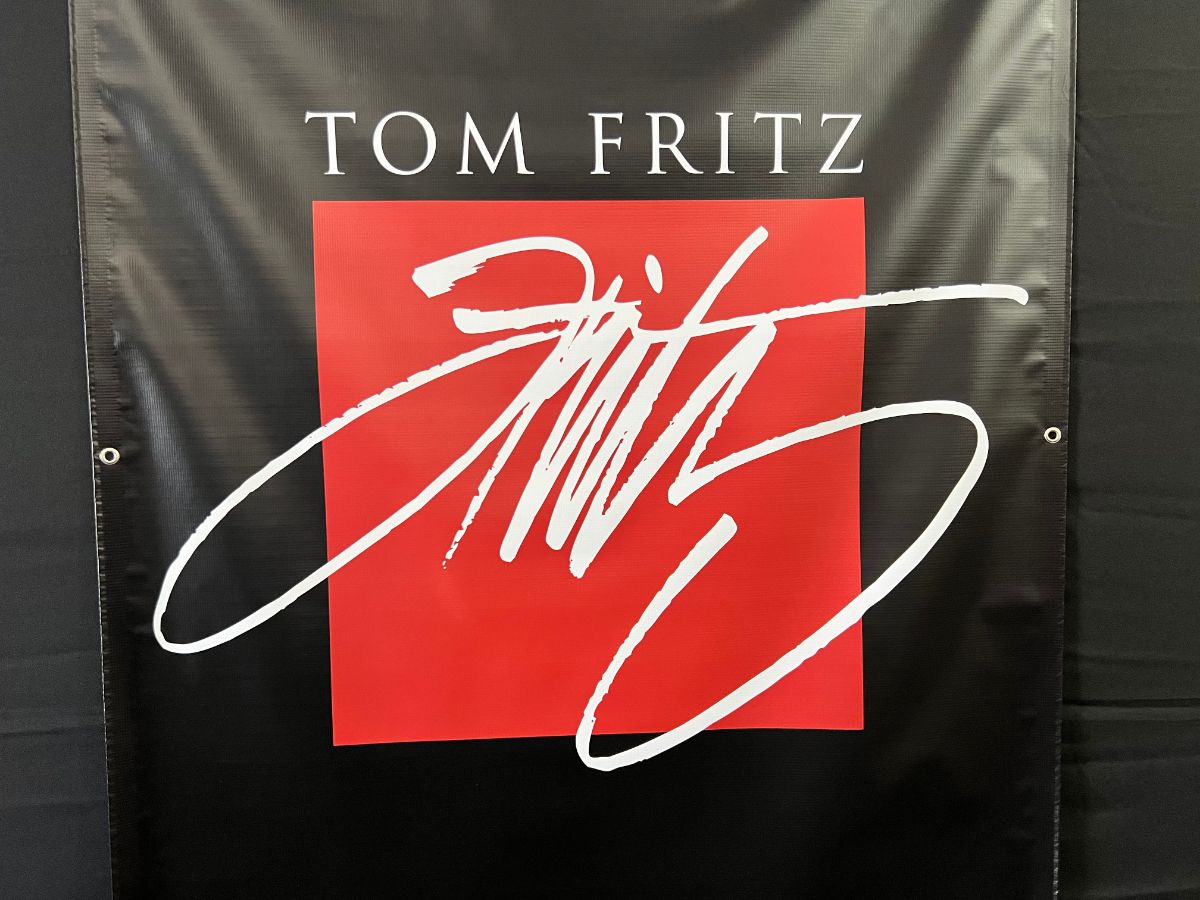

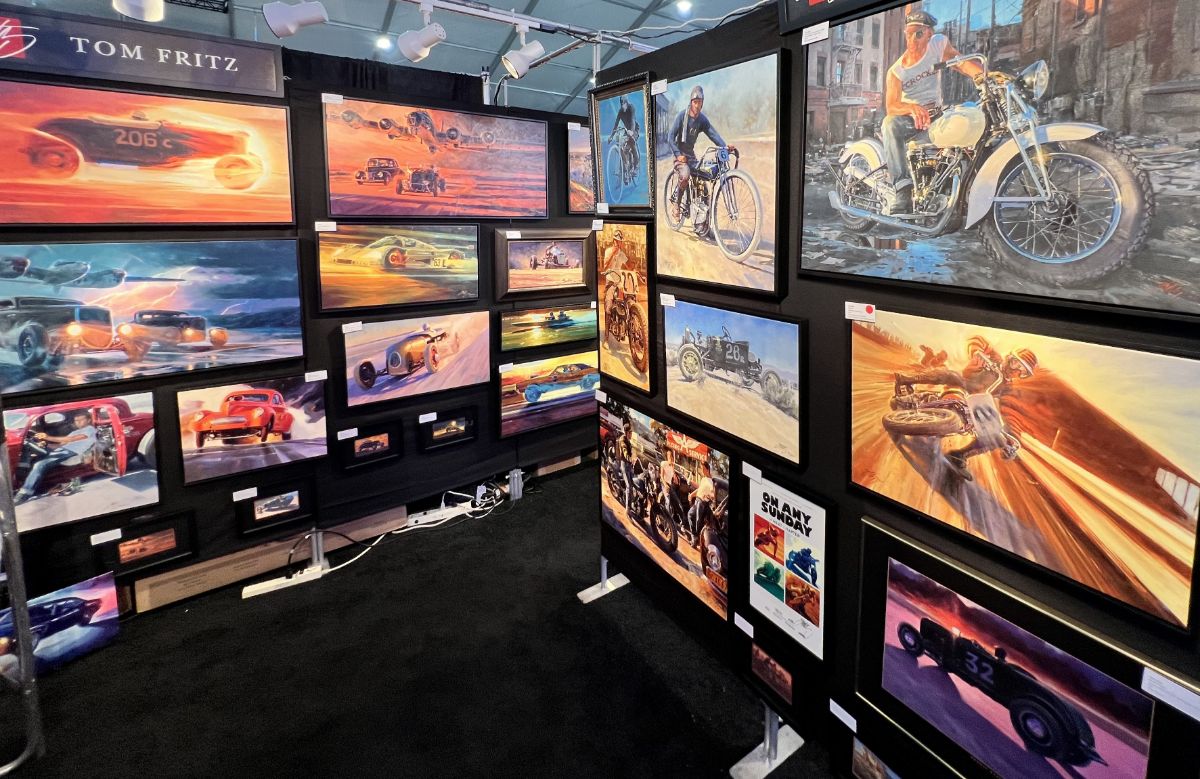

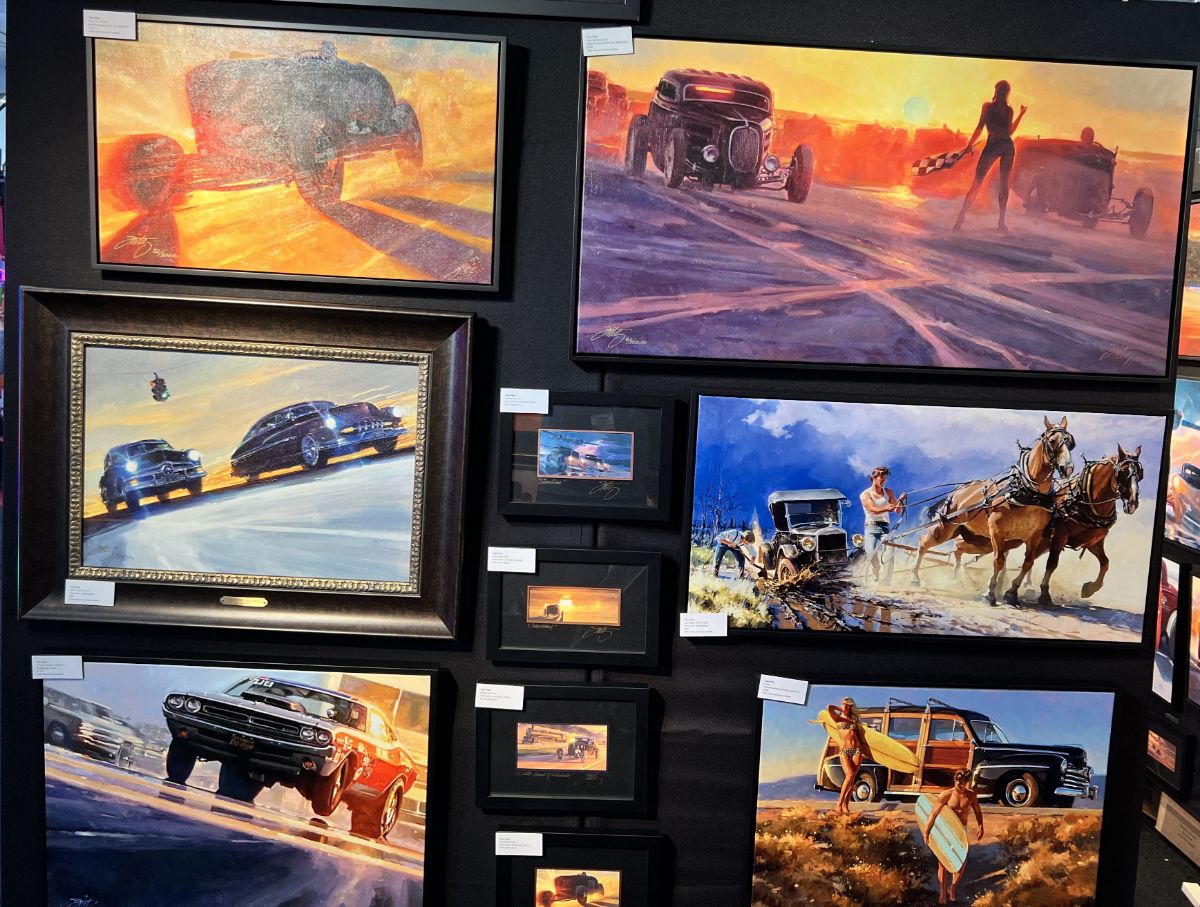


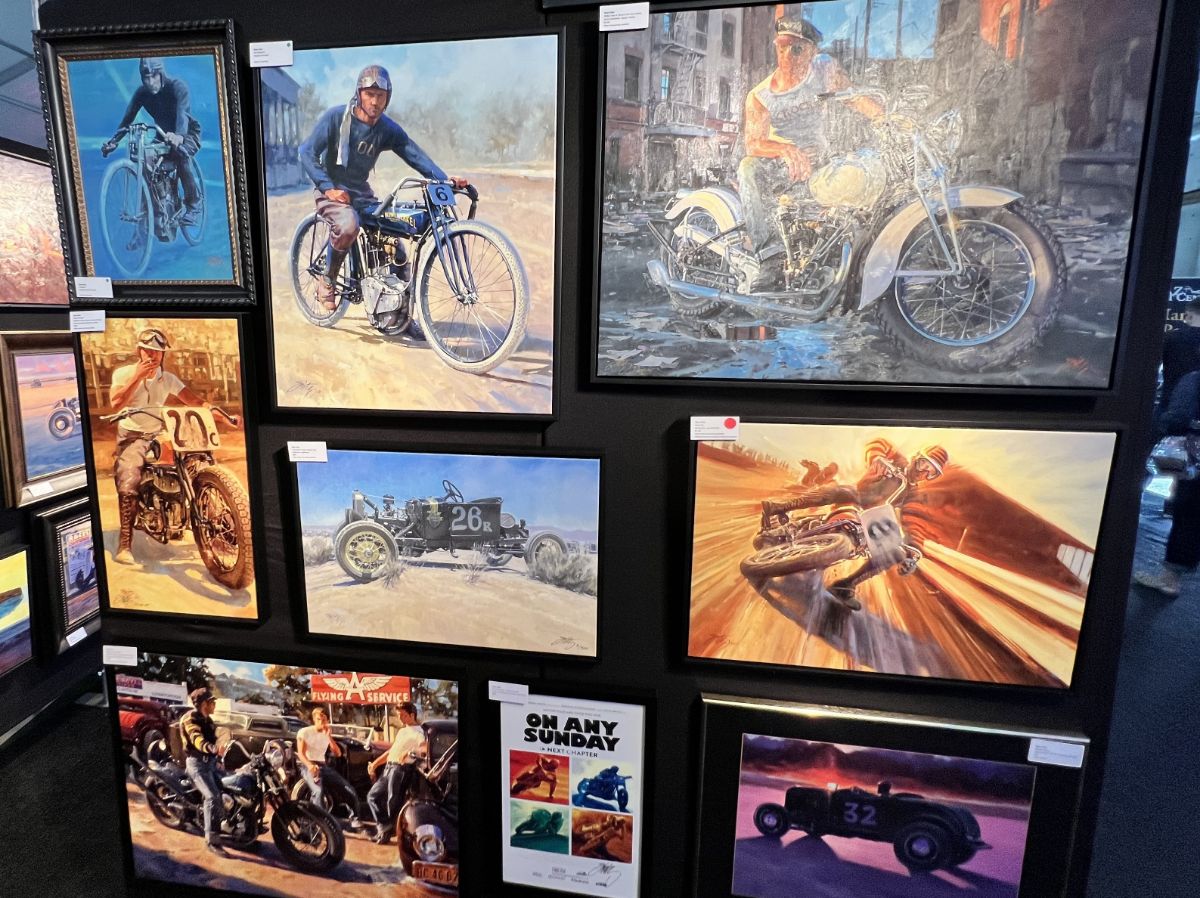
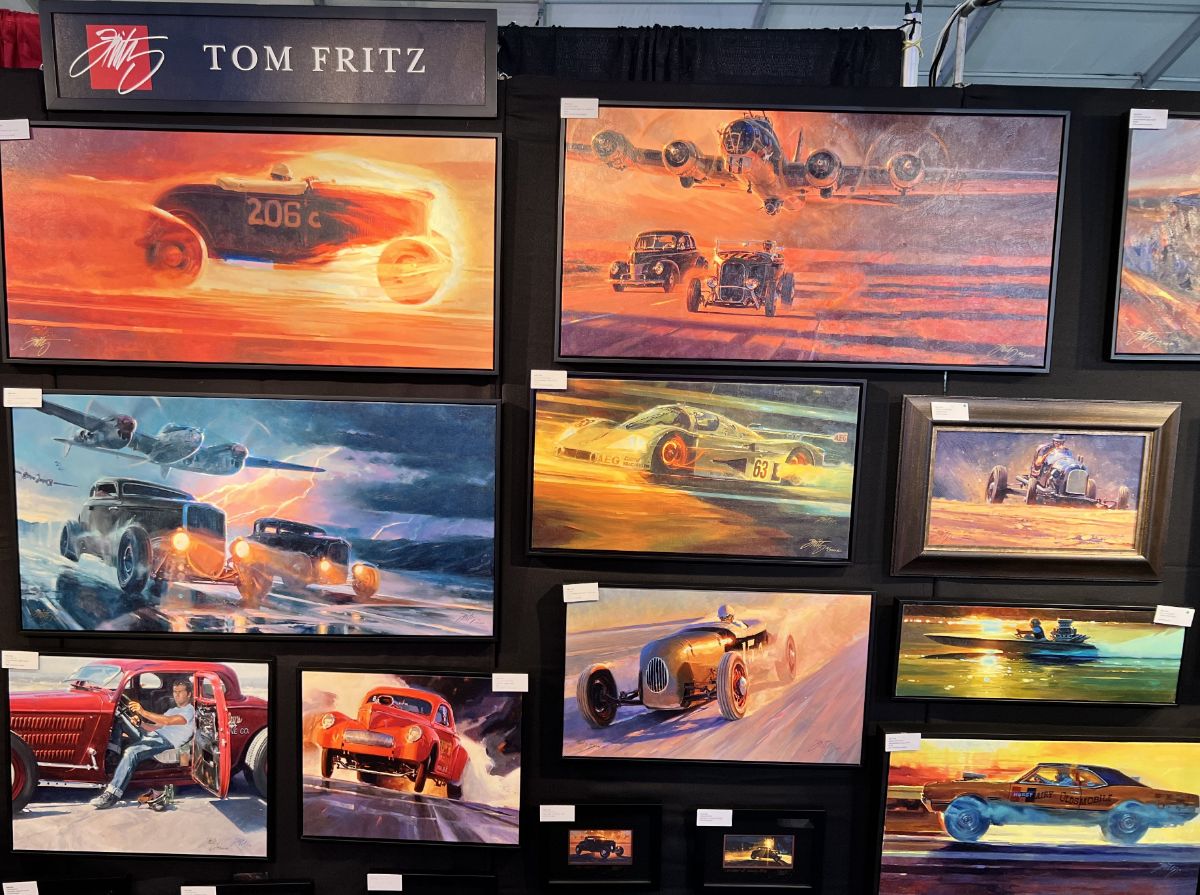



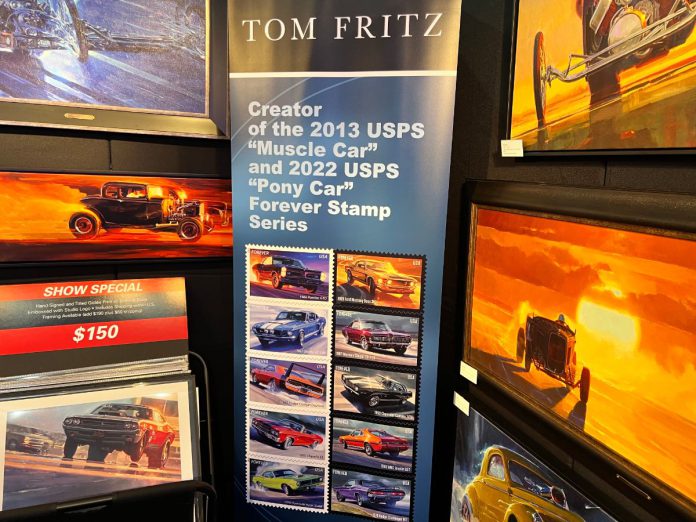


Cool story!